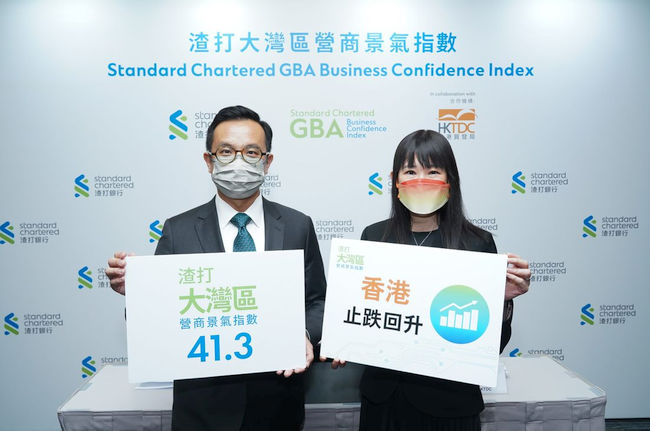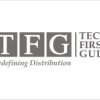
Standard Chartered and the Hong Kong Trade Development Council (HKTDC) released the “GBA Business Confidence Index” (GBAI) for the third quarter of 2022. It shows that the current performance for “business confidence” weakened for a fifth straight quarter in Q3 to 41.3 from 43.3 in Q2, reflecting a more challenging reality as both external (rising interest rates and recession risk) and domestic (COVID disruptions and a weak housing market) headwinds worsened in recent months.
This in turn prompted corporates to turn more cautious towards the Q4 outlook – the expectations index for business activity fell 2.6 points to 49.9 in Q3 from 52.2 in Q2, below the 50-neutral mark for the first time in nine quarters, indicating there is little hope of a swift pick-up momentum.
Meanwhile, among the 11 cities in the Guangdong-Hong Kong-Macao Greater Bay Area (GBA), Hong Kong (up 2.8 points to 42.5) and Guangzhou (up 0.9 point to 44.6) were the only two reporting improvements in their “current performance” sub-index. Hong Kong was the only city showing growth in the “expectation” sub-index (up 3 points to 46.3).
“With the recent relaxation of quarantine rules for inbound visitors, we expect Hong Kong to remain on a recovery path in the coming quarters,” said Kelvin Lau, Senior Economist, Greater China, Standard Chartered. “That said, a recovery is likely to be modest, given the intensifying external (looming recessions in the West and a slowing China) and domestic (higher interest rates and a weak housing market) drags.”
Financial services sector improves while tech plunges
Financial services was the only industry sector that saw improvements in both the “current performance” (up 7.9 points to 47.3), and “expectations” (up 9.1 points to 51.5) sub-indices. The sector likely benefited from recent policy easing, be it via the lowering of banks’ own borrowing costs or relaxation towards the real-estate sector, which could help banks mitigate some of the related downside risks to asset quality and loan growth.
Tech companies saw the biggest plunge in the “current performance” and “expectation” sub-indices, falling 10.7 points to 39.6 and down 15.3 points to 46.0, respectively. “Slowing consumer demand, strong capacity growth and high inventories globally, coupled with lingering domestic concerns stemming from prior regulatory tightening, likely explained the sharp fall,” Mr Lau added.
COVID disruption lessens
The GBAI is the first forward-looking quarterly survey in the market that looks at the business sentiment and synergistic effects in cities and industries across the GBA. It is compiled based on a survey of more than 1,000 companies in the GBA covering the manufacturing and trading, retail and wholesale, financial services, professional services, and innovation and technology sectors. The index enables investors and businesses to better understand the current business climate, gauge future performance prospects and formulate their market strategies for the GBA.
About half (49%) of the respondents said they have been affected by the pandemic in recent months in terms of transportation and/or logistics disruption, but more than 90% said China’s recent shortening of the quarantine period for inbound travellers would help improve business. Over 80% said China’s real-estate downturn would have limited or no impact on the overall economy. Meanwhile, most of the respondents said the impact of a potential reduction in US-China trade tariffs would be minimal, as any tax cut is likely to be small in scale and scope.
Asian markets outperform
The survey found that respondents have become more cautious regarding the market outlook and have broad-based growth concerns. Irina Fan, Director of Research, HKTDC, said respondents remained relatively upbeat regarding the outlook in Asian markets. Mainland China saw the highest share of gross positive responses, followed by Hong Kong and Macao, as well as the Association of Southeast Asian Nations (ASEAN) bloc.
“We expect the GBAI will rebound gradually when the pandemic subsides and business activities are able to fully return to normal. Yet, economic headwinds, lukewarm demand, fluctuating global markets and rising costs remain the key challenges ahead.”










